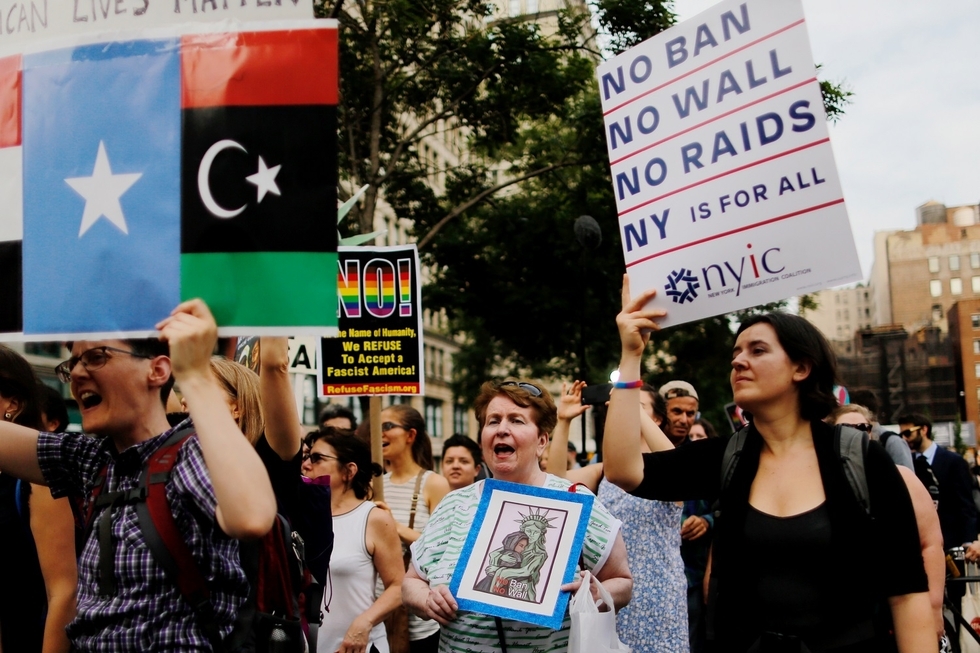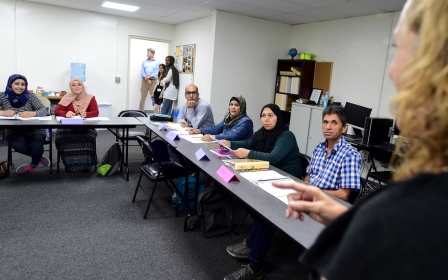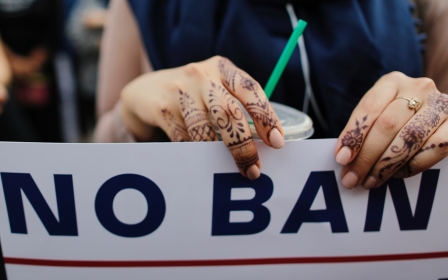US visas from 'Muslim ban' countries plummet

The number of US visas issued to visitors from the six nations listed on President Donald Trump’s “Muslim ban” has dropped by 44 percent, compared with the same period in 2016, according to a report by Politico based on US State Department data.
Predominantly Muslim countries not included in the ban also experienced declines in visas to the US. There was an 8 percent drop in visas for visitors from the world’s 50 Muslim-majority countries.
Non-immigrant visas to Syrians and Yemenis dropped by more than half, according to the analysis. The number of visitors from Iran, Sudan, Somalia and Libya also saw significant declines.
Shortly after taking office, in January, Trump announced a ban on seven Muslim-majority countries, which at that time included Iraq. The first executive order initially applied to visa holders and to US permanent residents as well. It caused chaos at airports and was struck down by the courts.
In March, Trump revised the order, dropping Iraq from the list and limiting the scope of the ban.
Critics and civil rights groups denounced both decrees as discriminatory. In 2015, while running for president, Trump pledged to ban all Muslims from entering the US.
The White House says the ban is necessary to prevent militant attacks.
After challenges in lower courts, the Supreme Court ruled that the second ban can temporarily apply to travellers who do not have bonafide relations with a US person or entity, opening the door to new legal battles over the definition of such ties.
The high court was set to look at the overall legality of the ban in October, but on Monday Trump replaced the second ban with a new decree that indefinitely restricts travel from Iran, Libya, Syria, Yemen, Somalia, Chad and North Korea. Sudan was removed from the list.
After the third ban, the Supreme Court cancelled oral arguments that had been scheduled for 10 October, signalling that it may dismiss the legal challenge to the executive order.
According to Politico’s analysis, visitor visas for Arab nations fell by 16 percent over the past six months.
The Central Asian countries of Uzbekistan, Kazakhstan and Turkmenistan were among Muslim-majority countries whose citizens were granted increased numbers of US non-immigrant visas in the last six months.
Middle East Eye propose une couverture et une analyse indépendantes et incomparables du Moyen-Orient, de l’Afrique du Nord et d’autres régions du monde. Pour en savoir plus sur la reprise de ce contenu et les frais qui s’appliquent, veuillez remplir ce formulaire [en anglais]. Pour en savoir plus sur MEE, cliquez ici [en anglais].




